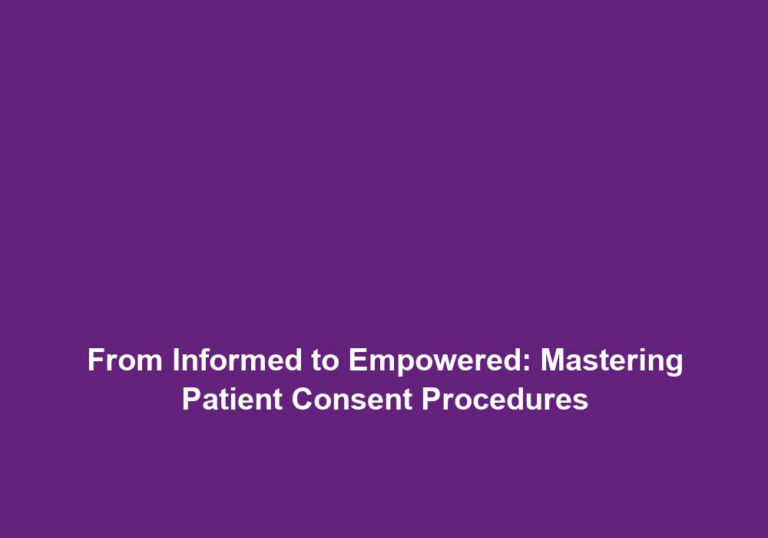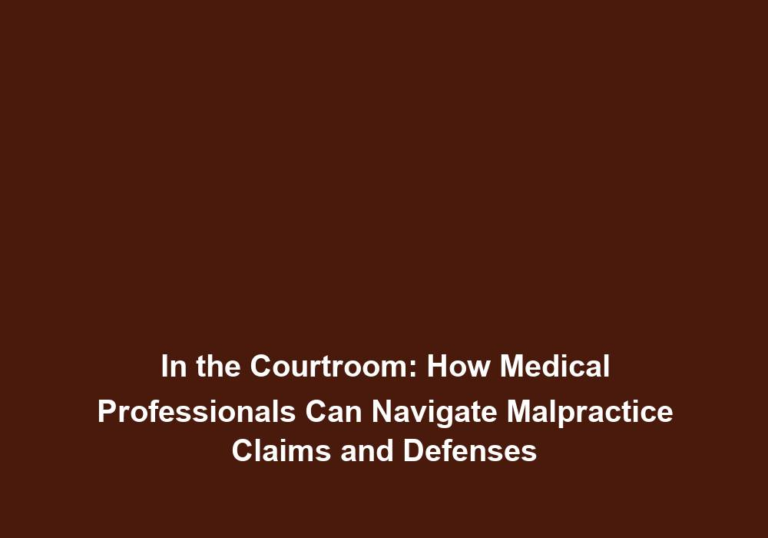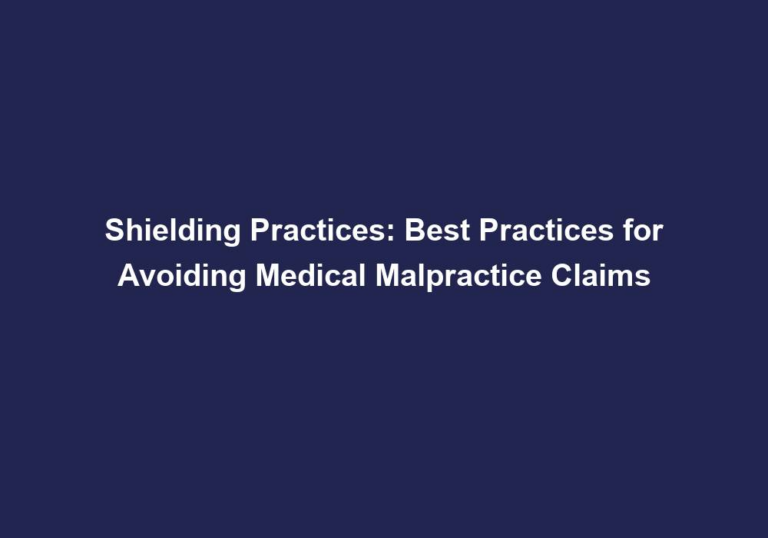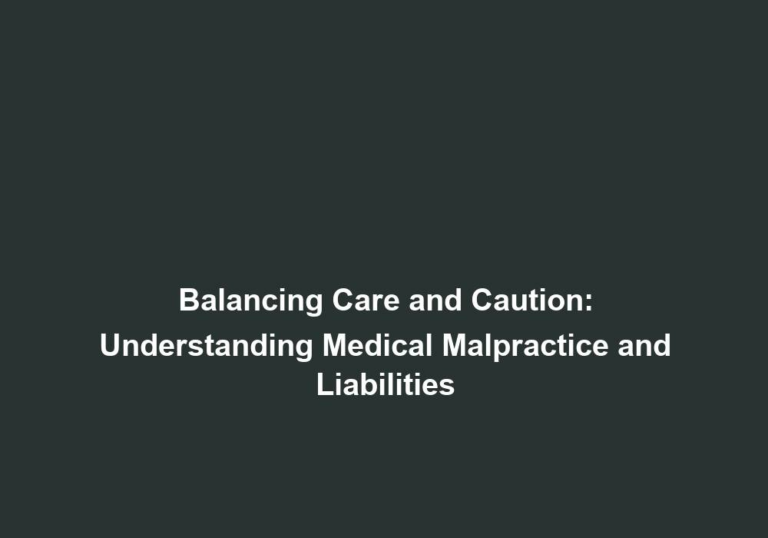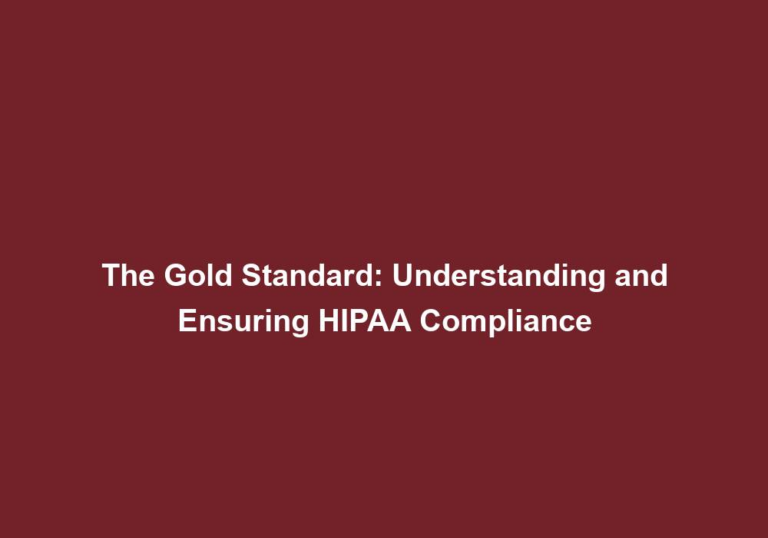Gateways to Practice: Understanding Licensing and Certification in Healthcare
In the ever-evolving field of healthcare, licensing and certification play a crucial role in ensuring the competence and quality of healthcare professionals. Whether you are a healthcare professional looking to advance in your career or a patient seeking trustworthy care, it is essential to understand the significance of licensing and certification. This article will delve into the details of these gateways to practice, shedding light on their importance and how they are obtained.
Licensing in Healthcare
Licensing is a legal requirement that grants healthcare professionals the authority to practice their respective professions. It serves as a safeguard to protect the public from incompetent or unqualified individuals. Obtaining a license typically involves meeting specific educational and examination requirements, as well as adhering to professional ethics and standards.
Types of Licenses
The types of licenses available in healthcare vary based on the profession and the jurisdiction in which one intends to practice. Here are a few common types of licenses:
- Medical License: Medical doctors (MDs) and doctors of osteopathic medicine (DOs) must obtain a medical license to practice independently. The licensing process involves completing medical school, passing the United States Medical Licensing Examination (USMLE), and fulfilling residency requirements.
- To obtain a medical license, aspiring doctors must first complete their medical education by attending an accredited medical school. This rigorous educational program ensures that doctors have acquired the necessary knowledge and skills to provide competent medical care.
- After completing medical school, doctors must pass the United States Medical Licensing Examination (USMLE), a comprehensive exam that assesses their ability to apply medical knowledge in real-life scenarios.
- In addition to the educational and examination requirements, doctors must fulfill residency requirements, which involve working in a hospital or clinical setting under the supervision of experienced physicians. Residency programs provide valuable hands-on training and practical experience, allowing doctors to further develop their clinical skills.
- Nursing License: Registered nurses (RNs) and licensed practical nurses (LPNs) must acquire a nursing license to practice. The requirements for obtaining a nursing license include completing an accredited nursing program, passing the National Council Licensure Examination for Registered Nurses (NCLEX-RN), and meeting any additional state-specific criteria.
- To become a registered nurse, individuals must first complete an accredited nursing program. These programs provide a comprehensive education in nursing theory and practice, preparing students to deliver safe and effective patient care.
- After completing their nursing education, aspiring registered nurses must pass the National Council Licensure Examination for Registered Nurses (NCLEX-RN). This standardized exam evaluates their knowledge and ability to perform various nursing tasks and responsibilities.
- Depending on the state, there may be additional criteria that individuals must meet to obtain a nursing license. These criteria may include criminal background checks, fingerprinting, and submission of an application fee.
- Pharmacy License: Pharmacists must obtain a pharmacy license to dispense medication and provide pharmaceutical care. The licensing process typically involves completing a Doctor of Pharmacy (Pharm.D.) program, passing the North American Pharmacist Licensure Examination (NAPLEX), and fulfilling any state-specific requirements.
- To become a licensed pharmacist, individuals must first complete a Doctor of Pharmacy (Pharm.D.) program. This doctoral-level program focuses on the study of medications, their uses, and their effects on the human body. It also includes practical training in various pharmacy settings.
- After completing the Pharm.D. program, aspiring pharmacists must pass the North American Pharmacist Licensure Examination (NAPLEX). This exam assesses their knowledge and skills in pharmacy practice and ensures that they are prepared to provide safe and effective medication therapy.
- Additionally, each state may have specific requirements that pharmacists must fulfill to obtain a pharmacy license. These requirements may include completing a certain number of intern hours, passing a state-specific exam, and submitting an application with the appropriate licensing board.
Licensing Boards and Regulatory Authorities
In most jurisdictions, licensing is overseen by dedicated boards or regulatory authorities specific to each profession. These entities are responsible for setting and enforcing the standards required for obtaining and renewing licenses. They may also investigate complaints and take disciplinary actions against professionals who violate regulations or fail to meet the expected standards of practice.
- Licensing boards and regulatory authorities play a crucial role in maintaining the integrity of the healthcare profession. They establish and enforce the standards that healthcare professionals must meet to obtain and maintain their licenses, ensuring that only qualified individuals are allowed to practice.
- These boards and authorities are composed of experts in the respective fields who have in-depth knowledge and understanding of the profession. They develop guidelines and regulations that healthcare professionals must adhere to, promoting best practices and patient safety.
- In addition to setting standards, licensing boards and regulatory authorities are responsible for investigating complaints and taking disciplinary actions when necessary. This ensures that professionals who engage in unethical or incompetent behavior are held accountable for their actions.
Renewal and Continuing Education
Licensing is not a one-time process; healthcare professionals must engage in regular renewal and ongoing education to maintain their licenses. Renewal periods vary depending on the jurisdiction and profession, but they often require the completion of continuing education credits. These credits ensure that professionals stay up-to-date with advancements in their fields and continuously refine their knowledge and skills.
- Continuing education is an essential component of license renewal for healthcare professionals. It allows them to stay current with the latest research, advancements, and best practices in their respective fields.
- The specific requirements for continuing education vary depending on the profession and jurisdiction. Healthcare professionals may need to complete a certain number of educational hours or participate in professional development activities to fulfill these requirements.
- Continuing education not only helps professionals maintain their licenses but also enhances their knowledge and skills. It enables them to provide the highest level of care to their patients and stay at the forefront of their respective fields.
Certification in Healthcare
While licensing ensures the legal authority to practice, certification demonstrates expertise and specialization within a particular area of healthcare. Certification is voluntary and typically offered by professional organizations or independent certifying bodies. It provides an opportunity for healthcare professionals to validate their skills, enhance their marketability, and showcase their commitment to excellence.
Benefits of Certification
Certification offers several advantages to healthcare professionals, including:
- Recognition of Expertise: Certification validates a professional’s knowledge and competence in a specific area of practice, distinguishing them among their peers.
- By obtaining certification, healthcare professionals demonstrate their expertise and specialized knowledge within a particular area of healthcare. This recognition sets them apart from their peers and establishes them as leaders in their field.
- Certification serves as a mark of distinction and can enhance professional credibility. It demonstrates to employers and colleagues that the certified professional has met rigorous standards and is committed to providing high-quality care.
- Improved Career Prospects: Certification can enhance job prospects, increase earning potential, and open doors to advancement opportunities within the healthcare industry.
- Many employers value certification as a measure of competency and expertise. Having a certification can make healthcare professionals more attractive candidates for job opportunities, as it demonstrates their commitment to ongoing learning and professional growth.
- Certification can also lead to increased earning potential. Employers may offer higher salaries or additional compensation to professionals who hold certifications, recognizing the added value they bring to the organization.
- Additionally, certification can open doors to advancement opportunities. It can qualify professionals for leadership roles, specialized positions, or higher-level responsibilities within their field.
- Continuing Professional Development: The process of obtaining and maintaining certification often requires ongoing education, promoting lifelong learning and professional growth.
- Certification is not a one-time achievement; it typically requires professionals to engage in continuing education and periodic recertification. This ongoing commitment to learning ensures that certified professionals stay current with the latest advancements and best practices in their field.
- Continuing professional development through certification allows healthcare professionals to continuously enhance their knowledge and skills. It encourages them to seek out new learning opportunities, attend conferences, participate in workshops, and stay connected with their professional community.
Certification Process
The process of obtaining certification varies depending on the profession and the certifying body. However, it typically involves meeting specific eligibility criteria, such as education, experience, and passing a standardized examination. Some certifications may also require the completion of continuing education, periodic re-certification, and adherence to ethical and professional standards.
- To pursue certification, healthcare professionals must meet the eligibility criteria set by the certifying body. These criteria often include a combination of education, experience, and professional accomplishments.
- Once the eligibility criteria are met, professionals must typically pass a standardized examination. This exam assesses their knowledge and skills in the specific area of practice for which they are seeking certification.
- Some certifications may also require the completion of continuing education to maintain certification. This ensures that certified professionals stay up-to-date with advancements in their field and continue to refine their expertise.
- Additionally, many certifying bodies require periodic re-certification to ensure that certified professionals maintain their knowledge and skills over time. This may involve completing a certain number of continuing education hours, passing an updated exam, or demonstrating ongoing professional engagement.
Notable Healthcare Certifications
Here are some notable healthcare certifications across various professions:
- Board Certified Physician: Physicians can pursue board certification in their respective specialties, such as cardiology, neurology, or surgery. The American Board of Medical Specialties (ABMS) is one of the primary organizations responsible for certifying physicians in the United States.
- Board certification is a prestigious achievement for physicians, as it demonstrates their expertise and proficiency in a specific medical specialty. It involves meeting rigorous educational, training, and examination requirements set by the certifying board.
- The American Board of Medical Specialties (ABMS) is the umbrella organization that oversees the certification of physicians in the United States. It sets the standards for specialty certification and collaborates with member boards to ensure consistency and quality across different specialties.
- Certified Registered Nurse Anesthetist (CRNA): CRNAs are advanced practice registered nurses specialized in administering anesthesia. They must obtain certification from the National Board of Certification and Recertification for Nurse Anesthetists (NBCRNA).
- Certified Registered Nurse Anesthetists (CRNAs) are highly trained professionals who provide anesthesia care to patients. To become a CRNA, registered nurses must complete a specialized graduate-level program in nurse anesthesia and pass the certification examination administered by the National Board of Certification and Recertification for Nurse Anesthetists (NBCRNA).
- The certification process for CRNAs includes a comprehensive examination that assesses their knowledge and skills in anesthesia practice. Certification must be maintained through ongoing professional development and recertification.
- Certified Pharmacy Technician (CPhT): Pharmacy technicians can enhance their skills and marketability by obtaining certification through the Pharmacy Technician Certification Board (PTCB). This certification ensures a high level of competency in pharmaceutical knowledge and practices.
- Pharmacy technicians play a crucial role in supporting pharmacists in various pharmacy settings. By obtaining certification through the Pharmacy Technician Certification Board (PTCB), pharmacy technicians demonstrate their commitment to professionalism and excellence in their field.
- The certification examination administered by the PTCB assesses a pharmacy technician’s knowledge and skills in areas such as medication safety, pharmacy operations, and patient care. Certification provides assurance to employers and patients that the pharmacy technician has met nationally recognized standards of competency.
Conclusion
In the complex world of healthcare, licensing and certification serve as vital gateways to practice. Licensing ensures that healthcare professionals meet the necessary qualifications and standards to safely and competently provide care. Certification, on the other hand, allows professionals to showcase their specialized knowledge and expertise within their chosen fields. Together, these processes establish trust and confidence in the healthcare system, benefiting both healthcare professionals and patients alike.


